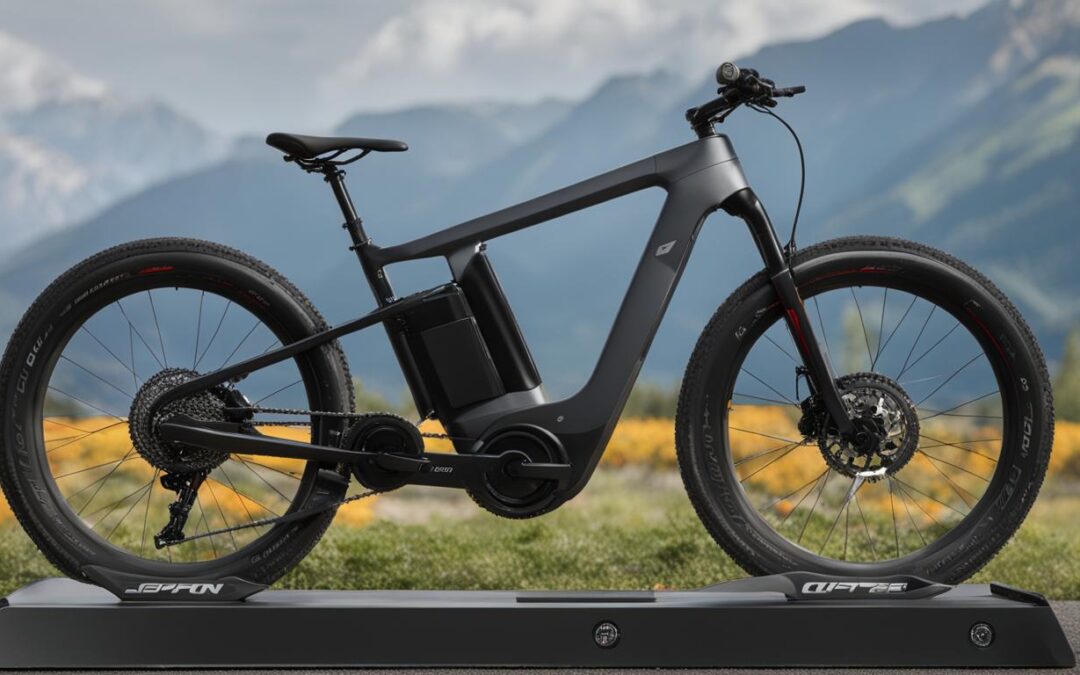Are you considering buying an electric bike, but not sure about the weight? Understanding the weight of an ebike is essential for choosing the right bike that fits your needs and provides optimal performance. In this article, we will explore the average weight of ebikes, factors that contribute to their weight, and the impact it has on their performance.
On average, electric bikes weigh between 40-80 pounds. However, the weight can vary based on various factors. The type of bike, battery and motor sizes, and the materials used all play a role in determining the weight of an ebike. Lighter ebikes are easier to pedal and maneuver, making them suitable for daily commuting or leisurely rides. On the other hand, heavier ebikes are often equipped with powerful motors for off-road adventures or hunting purposes.
When it comes to an electric bike’s weight, it’s important to consider the additional components that make it different from a regular bike. The presence of batteries and electric motors significantly adds to the weight of an ebike, often doubling or even tripling the weight of a traditional bicycle. Frames, wheels, handlebars, and other components are reinforced and designed to withstand the extra weight, providing better performance and functionality compared to regular bikes.
Factors such as the controller, motor, battery, frame, wheels, handlebars, and miscellaneous components like wiring and sensors all contribute to the overall weight of an ebike. Proper weight distribution is also crucial for the stability and handling of the bike.
Now that you have a better understanding of ebike weight, you can make an informed decision when choosing the right ebike for your needs and preferences. Whether you’re looking for a folding, commuting, mountain, cruiser, or fat tire ebike, knowing the average weights of different types can guide you in finding the perfect match.
Key Takeaways:
- Ebikes weigh between 40-80 pounds on average.
- The weight of an ebike is influenced by factors such as the type of bike, battery and motor sizes, and the materials used.
- Lighter ebikes are easier to pedal and maneuver, while heavier ebikes are typically equipped with powerful motors for off-road or hunting purposes.
- The additional electrical components and design modifications make ebikes heavier than regular bikes.
- Understanding the weight of an ebike is important for choosing the right bike based on your needs and intended use.
Why Are Ebikes Heavier Than Regular Bikes?
Ebikes, also known as electric bikes, tend to be heavier than regular bicycles due to the additional electrical components and design modifications. The weight of an ebike is primarily influenced by the presence of batteries and electric motors, which add significant weight to the bike. In fact, the weight of an ebike can often double or even triple that of a traditional bike.
Aside from batteries and motors, other factors that contribute to the additional weight of ebikes include the type of bike, price range, and accessories. To support the extra weight, ebike frames are reinforced and made sturdier compared to regular bike frames. Components such as wheels, handlebars, and frames are also designed to be more robust, allowing them to withstand the additional load and stress.
“The additional weight of ebikes is a trade-off for the enhanced performance and functionality they offer.” – Cycling enthusiast
Despite their heavier weight, ebikes are designed to provide better performance and functionality compared to regular bikes. The powerful motors and the assistance they provide allow riders to easily tackle inclines or ride for longer distances without exerting as much effort. Additionally, ebikes offer various features like LCD displays, pedal-assist modes, and different power settings, enhancing the overall riding experience.
While the additional weight may take some getting used to, the benefits of riding an ebike outweigh the weight concern for many cyclists. The added functionality and convenience make ebikes an attractive option for commuters, recreational riders, and those seeking an alternative means of transportation.
Factors Affecting the Weight of Ebikes
Several factors contribute to the weight of an electric bike. The weight of an ebike is influenced by various components that play a crucial role in its overall weight and performance.
Components Affecting Ebike Weight
The main components that impact the weight of an ebike include:
- The Controller: The controller is responsible for connecting all the electrical parts of the bike. It typically weighs around 1 pound.
- The Motor: The motor is the heart of an electric bike. Depending on the power and size, motors can weigh between 4.6 to 11 pounds. The more powerful the motor, the heavier it tends to be.
- The Battery: The battery is another significant component that contributes to the weight of an ebike. Batteries can weigh up to 20 pounds, depending on their capacity and technology.
- The Frame: The frame of an ebike is designed to support the weight of the electrical system. It is often reinforced and sturdy, adding to the overall weight of the bike.
- The Wheels: Wider wheels, commonly found in many electric bikes, add stability and traction but can also increase the weight.
- The Handlebars: While handlebars may not significantly impact the weight, they are an essential component and can contribute to the overall weight of the ebike.
- Miscellaneous Components: Wiring, sensors, and other miscellaneous components also play a part in the overall weight of an ebike.
It is important to note that the weight of these components can vary based on the specific make and model of the ebike.
Impact of Weight on Ebike Performance
The weight of an ebike can have a significant impact on its performance. Heavier ebikes may require more power to accelerate and climb hills, which may lead to faster battery drain and decreased range. Additionally, maneuverability and handling can be affected by the weight distribution of the bike.
On the other hand, lighter ebikes are generally easier to pedal and maneuver, making them more suitable for urban commuting or leisurely rides. However, lighter ebikes may have limitations when it comes to off-road or rugged terrain, as they may lack the power and stability offered by heavier models.
Weight Distribution in Ebikes
Proper weight distribution in an ebike is crucial for stability and handling. Ebike manufacturers carefully design the frame and component placement to ensure optimal weight distribution. The weight should be evenly distributed between the front and rear wheels, creating a balanced and comfortable riding experience.
Understanding the factors affecting ebike weight and their impact on performance can help you make an informed decision when choosing the right electric bike for your needs. Whether you prioritize power, range, maneuverability, or a combination of factors, considering the weight and its distribution is essential for the overall enjoyment of your ebike riding experience.
Average Weights of Different Types of Ebikes
When choosing an electric bike, it’s important to consider the weight of the bike as it can affect its performance, handling, and portability. The weight of an electric bike varies depending on its type and intended use. Here are the average weights of different types of ebikes:
| Ebike Type | Average Weight (Pounds) |
|---|---|
| Folding Ebike | 30-70 |
| Commuting Ebike | 50-70 |
| Mountain Ebike | 40-70 |
| Cruiser Ebike | 70 |
| Fat Tire Ebike | 60-80 |
As you can see, folding ebikes, designed for easy storage and portability, typically weigh between 30-70 pounds. Commuting ebikes, which focus on comfort and longer distances, range from 50-70 pounds. If you’re into off-road adventures, mountain ebikes can weigh between 40-70 pounds, with some heavier models reaching 70 pounds. For those seeking leisurely rides, cruiser ebikes weigh around 70 pounds. If you love exploring tough terrains like sand or snow, fat tire ebikes typically weigh between 60-80 pounds.
Understanding the average weights of different types of ebikes can help guide your decision when choosing the right bike for your specific needs and preferences. Whether you prioritize portability, long-distance comfort, off-road capabilities, leisurely rides, or tough terrains, there’s an electric bike out there that suits you.
Conclusion
In conclusion, understanding the weight of an electric bike, or ebike, is crucial when making a purchase decision. Ebikes are generally heavier than regular bikes due to the inclusion of batteries and electric motors. The weight of an ebike directly affects its performance, range, handling, and overall functionality.
Lighter ebikes are easier to pedal and maneuver, making them ideal for urban commuting or leisurely rides. On the other hand, heavier ebikes are equipped with powerful motors, making them suitable for off-road adventures or hunting purposes.
Considerations for ebike weight include the type of bike, intended use, and personal preferences. Folding ebikes provide convenience with their lightweight design, while mountain ebikes offer durability and stability with their heavier frames. It is essential to choose an ebike that fits your needs and provides optimal performance based on its weight.
In summary, the weight of an ebike is influenced by various factors and components, such as batteries, motors, frames, and additional features. By understanding the weight of an ebike and considering factors like the type of bike and intended use, you can make an informed decision and choose the right ebike that suits your needs and preferences.
FAQ
How heavy are electric bikes?
Electric bikes, or ebikes, weigh between 40-80 pounds on average.
Why are ebikes heavier than regular bikes?
Ebikes are heavier than regular bikes due to the additional electrical components and design modifications.
What factors affect the weight of ebikes?
The weight of an ebike is influenced by factors such as the type of bike, battery and motor sizes, and the materials used.
What are the average weights of different types of ebikes?
Folding ebikes typically weigh between 30-70 pounds, commuting ebikes range from 50-70 pounds, mountain ebikes can weigh between 40-70 pounds, cruiser ebikes weigh around 70 pounds, and fat tire ebikes typically weigh 60-80 pounds.

